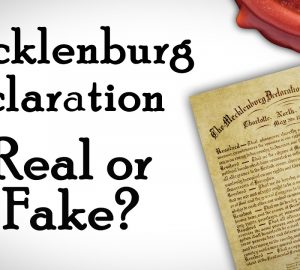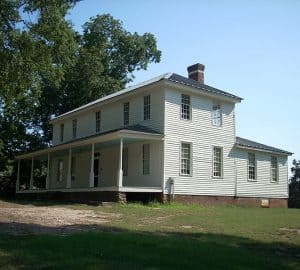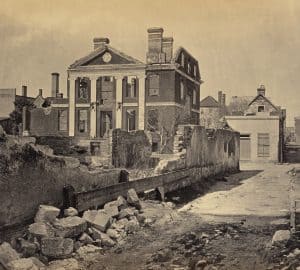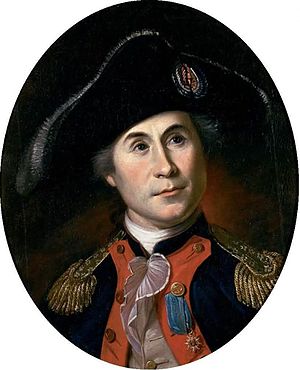
It was on this day in 1778 that Americans under John Paul Jones attacked Whitehaven, England, landing on Britain’s shores for the first time in the War for Independence. American naval commanders had already sailed off the shores of England, but although they had captured English ships, they had never been able to land. Jones set out to change this. He believed that it was more efficient to attack the ships in their home port rather than chasing them across the open ocean, and that to make a real difference in the course of the war he had to bring the war home to the English on their own soil.
His ship was the USS Ranger. Launched from Maine, Jones sailed her across the ocean to France, capturing British vessels along the way. Jones had hoped to sail in a larger ship, but when that plan fell through, he set out from France on April 10, 1778. Sailing into the Irish sea, he captured two small prizes and burned them. Hindered by unfavorable winds, he made his way towards Whitehaven, which he planned to attack. On the night he had prescribed the attack, when he lowered his boats the wind shifted, and he had to reembark and sail out of the port . From captured sailors he learned of a group of unprotected ships, but again the winds were against him. Hearing from fishermen that the HMS Drake was alone in port, he planned to board and capture her at night. But when she was in position she was blown away because someone neglected to lower the anchor.

The wind was finally favorable for a sail to Whitehaven on April, 22. At midnight, the morning of April 23, the two boats were lowered. Jones picked thirty-one men to man them. He commanded one boat and Lieutenant Samuel Wallingford of the Marines the other. The tide was running out and they made slow going, so it was dawn before they landed on the stone piers. Wallingford was sent to burn the many ships of the harbor, and Jones himself headed for the fort guarding the harbor. The sentry gave no warning and had probably fallen asleep, having no expectation of an attack. Jones was lifted over the wall, followed by the rest of the men. The fort was old and lightly manned. Completely surprised, the garrison surrendered without putting up a fight. Jones loaded the prisoners in a boat, and spiked the fort’s guns. Going on to the other, smaller fort, it also fell without resistance and it’s guns were spiked.
Jones’s mission was complete, but when he rejoined Wallingford he was disappointed to discover that he had failed. This was before the invention of matches. Fires could be lit with flint and steel, but that was a time consuming process, so the normal procedure was to light one flame from another. But Wallingford’s candle had gone out. In a hurry to escape the harbor before more English arrived, the Lieutenant abandoned the plan to burn the shipping. But unwilling to accept this reverse and determined to succeed, Jones improvised. Going to a house in the town he obtained a light, and fired one of the ships.
As the flames roared higher, the town’s inhabitants flocked down to the piers, watching their ships burned. Ordering his men to the boats, Jones brandished a pistol before the crowd, convincing them to beat a hasty retreat. Once he was sure the flames could not be extinguished, he jumped into the boats and headed back to the Ranger.
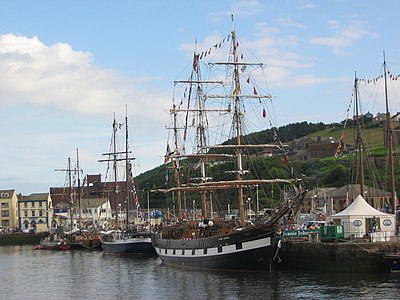
Although he had been unable to destroy all of the town’s shipping, he was able to send tremors of fear through England. They could no longer believe themselves completely safe from war, since the Americans had landed on their doorstep. Jones later wrote:
Had it been possible to have landed a few hours sooner, my success would have been complete. Not a single ship, out of more than two hundred, could possibly have escaped, and all the world would not have been able to save the town. What was done, however, is sufficient to show that not all their boasted navy can protect their own coasts; and that the scenes of distress which they have occasioned in America may be soon brought home to their own door.1
Jones would continue on to a famous career, creating one of the most famous legends of the American navy.

1. John Paul Jones by Lewis Frank Tooker (New York: The MacMillian Company, 1916) p. 58.


